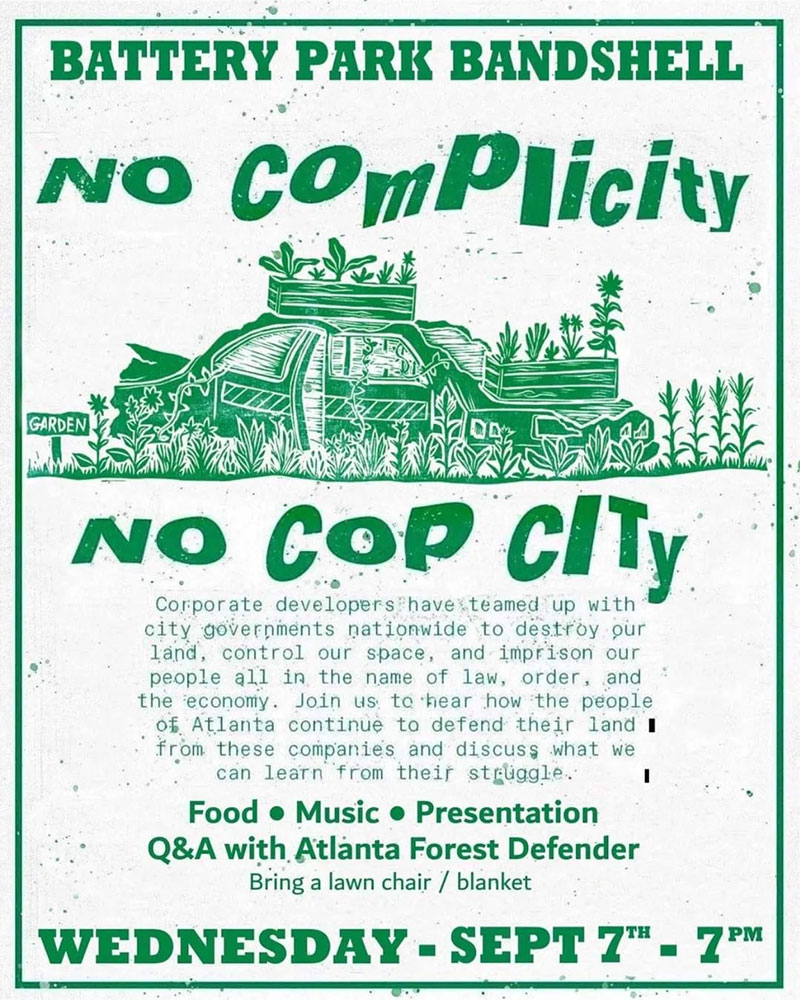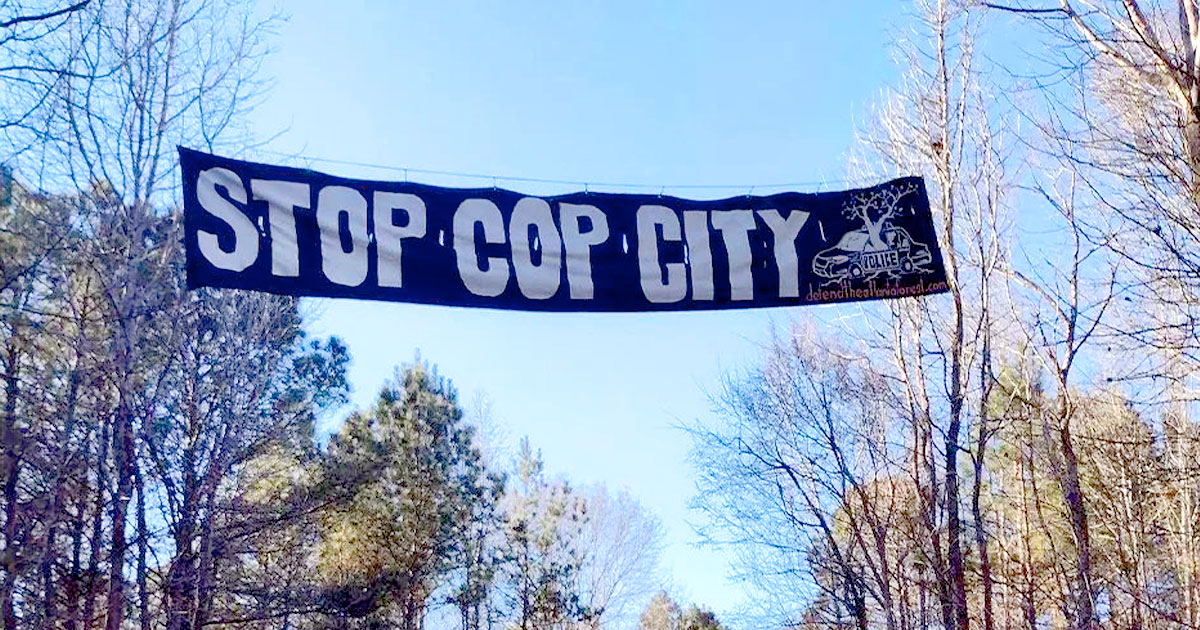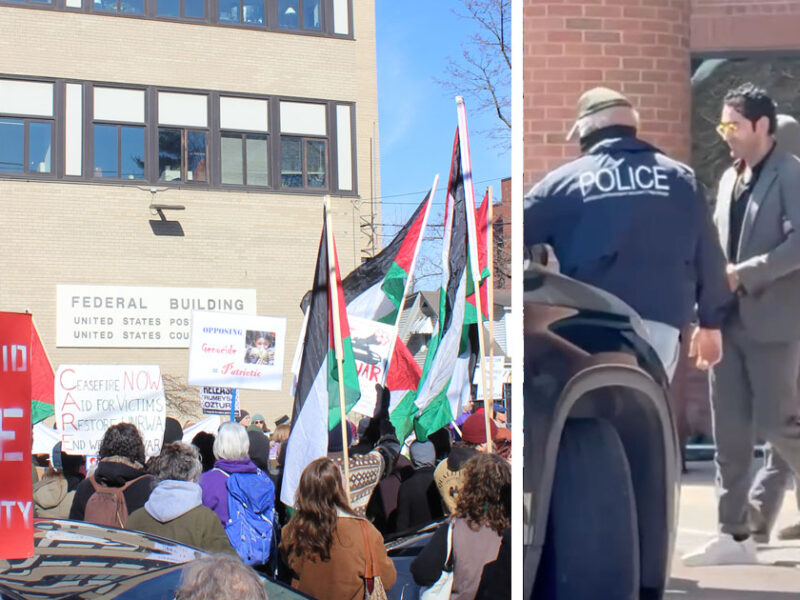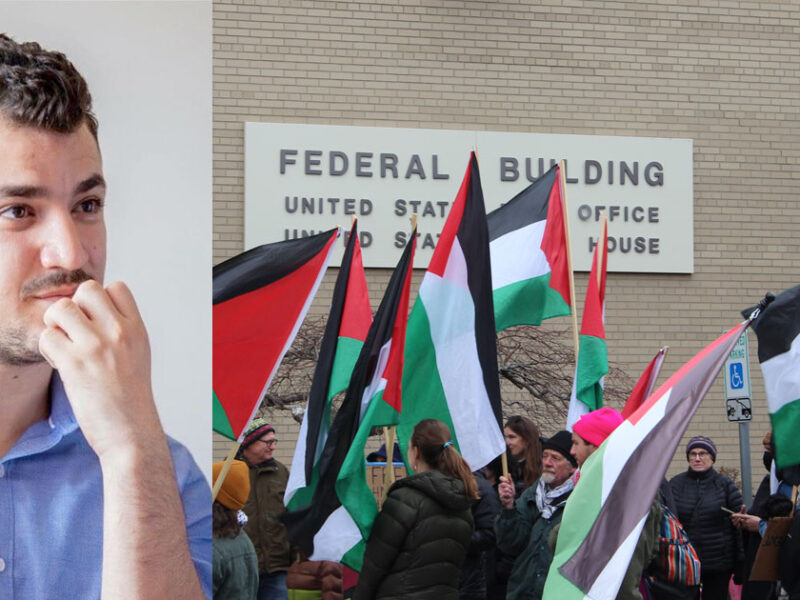On September 7, dozens of Burlington residents gathered at Battery Park to learn more about the biggest land use fight currently happening in the country. “No Complicity, No Cop City,” organized by BTV CopWatch, aimed to educate Vermonters on the fight in Atlanta to halt the development of the South River Forest, the nation’s largest continuous urban forest. These plans for development will push forward further state violence and capitalism, taking access away from the city’s residents, exacerbating gentrification, and significantly disrupting the ecology of the area.

The $90 million project, popularly known as “Cop City,” is set to be the largest police training facility in the country, replete with firing ranges, helipad, explosives facilities and an entire mock city for advanced training. Cop City, the product of a deal between the City of Atlanta and Atlanta Police Foundation, would also boast a sound stage for use by Georgia’s film industry. While this project is new, the designated land has already been steeped in state violence, through its initial theft from the Muscogee people and its subsequent use as first a slave plantation and then federal prison.
National news outlets across the country have covered efforts by activists and the decentralized autonomous movement to stop Cop City. Whether they be camping in trees set to be demolished, blocking access points for construction and demolition crews, or ensuring that the forest fosters community events and access to food distribution, teach-ins, and live music, the numerous strategies deployed have succeeded so far in holding off any development.
Solidarity with those defending the forest is a task being taken up in communities across the country. Despite being thousands of miles away, the defense of the South River Forest against Cop City is reminding some Vermonters that land here, too, could be taken from the people and put into the hands of the police and military state.
Violent Policing Tactics and Strategy Championed in Vermont
The Cop City project, if completed, would serve to train Atlanta’s police in the latest brutal gunfire, explosives, and response tactics employed by departments across the country, all for a lease of $10 a year to the City of Atlanta.
As in Burlington, Atlanta’s police stood in the way of modest reforms by engaging in a work slowdown, while promoting “crime wave” narratives that have taken hold nationwide. In response, Atlanta city councilors, like those in Burlington, voted to increase police budgets. They also voted in favor of the Cop City project, which despite its claims of being “devoted to civil rights” and embracing “police reform and cultural sensitivity” only continues the trend toward police militarization.
Vermont is not immune to the culture that surrounds large city police departments and their use of force to suppress residents and protect capital. The training that Atlanta police would receive at Cop City would be a dream come true for many Burlington cops, especially its top cop. Burlington’s Interim Police Chief Jon Murad has forged relationships with pro-police think tanks and was deeply entrenched in the racist and violent NYPD, whose former commissioner, Bill Bratton, has served as Murad’s mentor. (Had Cop City’s sound stage been built in the early 1990s, it’s likely Murad would have honed his acting chops there.)
A Military Stronghold in Vermont
Every day, Chittenden County residents suffer from the noise emitted by the disastrous F-35 project, but fighter jets aren’t the only militarized presence in the state. The Army Mountain Warfare School trains soldiers from all branches of the military on a variety of courses, recently investing $30 million in upgrades to the facilities it uses to train in mountain warfare and combat. The fired rounds that echo across the school’s 445 acres in Jericho are an audible reminder of our Vermont National Guard’s central role: not setting up COVID vaccine centers or shelters after a hurricane, but visiting violence on the U.S. government’s enemies, both foreign and domestic, in an urban neighborhood or atop a tree-sit.
Lessons Learned
The saying “that doesn’t happen here” is always wrong. Violent policing is the prevailing choice among cops in the state. The weaponry that murders victims of U.S. imperialism is stationed here, and those who have the means to carry it out are trained here. Public lands are always one political deal away from privatization. Communities around Vermont may yet see their own Cop City. Understanding how the decentralized autonomous movement in Atlanta has succeeded so far against their armed and well-funded foes may prove a timely lesson for Vermonters who seek to fight back against any unwanted advances of state violence and capitalism.
Matt Moore is a writer from Vermont. He is on the editorial collective of The Rake Vermont.



